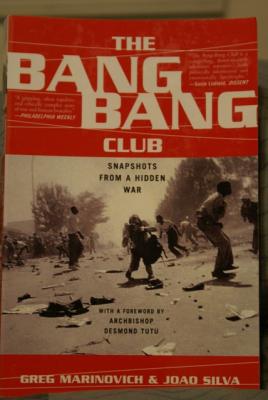Sunday, 18. March 2007
Women crossing borders

I have started working with Lithuanian National Radio for the show on science and knowledge. This is my first "letter" or "diary" entry, in Lithuanian, though, about the "Amazones", women master drummers from Guinea that visited Brandeis a couple of weeks ago and I was invited to their evening performance. They also participated in the symposium on women crossing borders: playing the drums forbidden for women by tradition they break the old tabu; on the other hand, some were unable to leave Conakry due to civil unrest in the country. The paradoxes of border debates - are they disappearing or reappearing?
http://www.lrt.lt/pazinimas/news.php?strid=1244&id=1579
ieva jusionyte, 17:42h
... link (4 Kommentare) ... comment
Wednesday, 7. February 2007
border violence


“In the Borderlands
you are the battleground
where enemies are kin to each other;
you are at home, a stranger,
the border disputes have been settled
the volley of shots have shattered the truce
you are wounded, lost in action
dead, fighting back; […]
To survive the Borderlands
you must live sin fronteras
be a crossroads."
G. Anzaldua, “Borderlands. La Frontera”
Borders have been of interest to me for some time now, maybe with an intention of going back home and settling down in Taurage to observe how river Nemunas performs its border functions between Russia and Lithuania, now in the European Union. But before that I have some more borders to explore... Peru-Ecuador and the triangle between Argentina, Paraguay and Brazil. It is tautological to say that borders are not natural, they are political constructs and, as such, are subject to changes. But there are people out there, in borderlands, for whom borders do not exist. They are transgressors by birth, like some Southwestern tribes or Mexican migrants on the U.S.-Mexico border. On the other hand, borders are very real - the fence surrounding remaining Palestinian territories or the proposed wall in Texas. How are they experienced? A question worthy of an anthropologist. As violence, would be my premature answer today. This violence can be institutional - those moving across borders are classified as "illegals", "criminals", "transgressors". But this violence can also be physical, when they encounter border patrols, militiamen or unwelcoming citizens of another state. Migrants can be killed or mutilated. Violence is also physical in a milder sense at border control, which is easily proven in any U.S. airport. It is, however, worst when borders are spaces where politically motivated military conflict between states is enacted upon individual bodies. However, apart from borders between warring states, the most bloody ones are borders that are rich of natural resources, be it oil, diamonds or gold. Many South American and African borderlands are sites of violence that are little explored compared to the U.S.-Mexico border.
At the moment I am writing a research proposal for the Southern Cone borderlands, the "triangle" border area of Argentina-Brazil-Paraguay, described as a lawless zone for drug and human traffickers, smugglers, terrorists. State officials are benefiting from these porous borders while the populations living on both sides of the so-called "Friendship Bridge" or those displaced by the huge hydroelectric development projects on Parana river - Itaipu and Yacyreta dams - are driven into networks of crime by extreme poverty.
However, how does one go and study the border? It is more than obvious that I could not get the permission from all three governments to sneak around for a year, investigating these structures of violence. I would be accused of spying. And even if not, in case I discover something useful for my research, I could get into real trouble. It is organized crime in this area that keeps people paralyzed. Police officers are involved in death squads. Hundreds of contracted killings are facilitated by the free movement of hired murderers. Witnesses are too scared to appear in court and those who do often (!) get killed. And yet some do work there - the journalists. Most of them are local and do not get fortunes for working under conditions that equal war reporting. They risk their lives by exposing crimes committed on the border. Actually, the situation is as bad as this: one mayor caught in crime said that it is cheaper to order a journalist to be killed than to pay the price demanded for withholding publication of a report.
Therefore, now I am thinking of choosing journalists working on the border as the unit of analysis. Border violence manifests itself pretty harshly on them. And by being with them I would at least risk less to be involved in actual investigation of crimes, that is, be one level further from that danger, which, however, does not disappear. Especially for one who is dedicated to be an ENGAGED OBSERVER and follow the principles of activist research, therefore, this project would unite the different interests that I have - anthropology, journalism and politics. In order to understand how power structures suffering one has to engage theory with politics in ways that are relevant to the people we study. In other words, ethnography needs political teeth as well as theoretical depth and self-reflection.
By the way, there is an article in "NY Times" today about how "illegal" border crossing has become a bizzare tourist attraction on Mexico-U.S. frontier. "Run! Hide! The Illegal Border Crossing Experience":
http://travel.nytimes.com/2007/02/04/travel/04HeadsUp.html?8dpc
ieva jusionyte, 20:12h
... link (0 Kommentare) ... comment